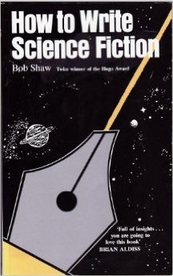 Last week I was one of Kobo’s writers in residence at the London Book Fair. Several of the questions I was asked reminded me that every day, writers are trying to grasp this new publishing world. I thought it might be helpful to post their FAQs.
Last week I was one of Kobo’s writers in residence at the London Book Fair. Several of the questions I was asked reminded me that every day, writers are trying to grasp this new publishing world. I thought it might be helpful to post their FAQs.
Should I post samples of my book on my blog to tempt people to buy?
You could, but you don’t need to. The ebook stores offer a sample of the beginning before readers buy. Here are two other things I do.
- I use the eye-catching animated widget from Bookbuzzr (here’s Nail Your Novel).
- I also have an audio file of the first 4 chapters of my novel – 35 minutes of listening, perfect for a commute. It’s either downloadable (hosted as a file in Google Docs) or there’s an immediate-play version on Soundcloud.
Should I make a print edition?
If you’re going to meet readers in real life, yes. For my talk, I’d brought along print copies. When I pulled them out of my bag, the reaction was immediate and adoring, as if they were fluffy kittens. Even from the Kobo staff. People picked the books up, flicked through the pages, stroked the spine, read the back (spine and back covers are as important as front). I was amazed, actually, at how much impact a print edition makes.
I have a post here about interior formatting, but it’s quite a faff if you’re not used to it. Which leads me to…
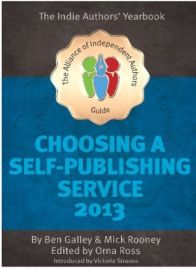 Which services should I pay for?
Which services should I pay for?
If your book is traditionally published, the publisher does a lot of jobs you’re probably not aware of. Developmental editing, copy editing, proofing, design of cover and interior, typesetting and ebook formatting. It’s a growing business to offer these services to indie authors, so The Alliance of Independent Authors has released Choosing a Self-Publishing Service 2013, with testimonials and warnings where necessary. Before you part with any money, get this book.
What can I do to market my book?
The guys at the KDP stand reported that this year’s number one question was ‘why isn’t my book selling’? (Some writers were ruder than that. I saw a furious lady collar an Amazonian and growl: ‘I have five books on KDP, what are you going to do about selling them?’. If Amazon starts offering marketing services, don’t wail that they’re evil. They get asked about it day in, day out. And it’s very unfair to blame them for it. They just give you the space to use.)
Amazon had some sensible replies: get a stand-out cover, choose categories wisely, write a cracking blurb, get honest reviews, generate curiosity about your work. And (the representative said this with an embarrassed cough): make sure the book is good.
More on marketing
 Kobo’s Mark Lefebvre (on Twitter as @MarkLeslie) gave a rousing presentation on writers connecting with readers. One method was ‘street teams’. Remember The Tufty Club? These days, post-Tufty writers are inviting fans to join dedicated sites and giving away special editions, tie-in jewellery, bags and temporary tattoos. If it fits your genre (I can’t quite imagine a red piano tattoo myself) you could make up a few as competition giveaways.
Kobo’s Mark Lefebvre (on Twitter as @MarkLeslie) gave a rousing presentation on writers connecting with readers. One method was ‘street teams’. Remember The Tufty Club? These days, post-Tufty writers are inviting fans to join dedicated sites and giving away special editions, tie-in jewellery, bags and temporary tattoos. If it fits your genre (I can’t quite imagine a red piano tattoo myself) you could make up a few as competition giveaways.
Another tactic Mark described was authors who band together as a bigger presence. Group blogs in a genre such as Crime Fiction Collective, author collectives (such as Triskele Books and Authors Electric) curated collections such as the League of Extraordinary Authors). And of course there are themed blogs like my Undercover Soundtrack.
One of the takeaways is that marketing isn’t one-shot. It’s about staying visible, steadily and sustainably. As with the editorial and production services, there are a lot of marketing companies who’ll take authors’ money for campaigns, but you don’t have to do that. You don’t need a big budget to keep your work on the radar, you just need imagination and likeminded souls. Paid advertising and publicity has its place but there’s a lot you can do yourself.
Let readers pre-order your book
Did you know Kobo lets you create a page for pre-orders? I didn’t. Why would you do this? Because when the book launches, you then get a big spike of sales because they all process on the same day. This pushes you further up the charts and makes you more visible in the Kobo store. Now, if I can just get my blurb written for Nail Your Novel: Bring Characters to Life…
BTW I changed my Twitter name
If you follow my writing advice stream you might have noticed I changed my handle from @DirtyWhiteCandy to @NailYourNovel. @DirtyWhiteCandy was the original name of my blog. I kept it as my Twitter name because I liked its bossy vibe, but as the years go on, fewer people would know (or care) where it came from and if people are looking for writing advice they’d be more likely to follow a tweep called @NailYourNovel. These days, indie author-publishers are looking smart and slick, rather than roguishly maverick. So, much as I liked the @DirtyWhiteCandy story and sass, it has to go.

FAQ: Should I submit to publishers and agents or should I self-publish?
Hmm. Sound of teeth being sucked. Look back over this post and you’ll see the amount of work involved in publishing. You don’t just write a book, upload and hope the fairies tell the world. You need expert help to create it and you need partners to spread the word. Publishers and agents can be your allies if the deal is right.
Big if.
Read on.
 Authors are still largely invisible in the publishing industry
Authors are still largely invisible in the publishing industry
One of the highlights for many was the heaving turnout at the Author Lounge in the digital quarter. Every author event was swarming with eager listeners. Authors report overhearing agents muttering about tumbleweed blowing through the foreign rights section, while on the upstart digital stands, all was abuzz.
But don’t be misled. In our own corner authors were calling the shots, but the rest of the conference told a different story.
Two examples.
1: Neil Gaiman
On the Sunday before the main fair, there was the Digital Minds Conference. The keynote speech was given by Neil Gaiman. I have to wonder what the delegates were meant to learn from him about digital media.
LBF’s press releases made much of the fact that he blogs and has a lot of Twitter followers. But, my friends, that’s because he was traditionally published. The publishers may have lauded themselves for inviting an author to tell them the way ahead, but they chose one who reinforces their faith in the old model. Even in his struggling years, Gaiman wasn’t like most new authors, writing books on spec while having another job. He was a contractor at DC Comics, getting paid while he made the work that made his name. In fact, why didn’t they ask JK Rowling, who famously lived hand to mouth while writing?
Better still, their figurehead could have been a bestselling indie author who made their success purely from publishing’s new digital tools. Hugh Howey, anybody? Instead they had Gaiman comparing publishing with a dandelion, throwing seeds out haphazardly and seeing what works.
Quite.
2: Ahem – monstrous storytelling
Elsewhere at the Fair, the authors weren’t getting much credit. I went to the session on digital storytelling. This featured a panel of publishers and developers, but no actual storytellers – the authors.
 One of the panel members, Henry Volans of Faber Digital, wrote an accompanying piece for the Bookseller, in which he mentioned Dave’s Frankenstein app. He credited it to the publisher, Profile Books, and the developer, Inkle. He never mentioned Dave, the author. Now, forgive the personal bias but I hope you’ll see it illustrates a wider point. Dave had the entire idea. He pitched it to Profile, figured out how to make it work, reenvisioned and expanded the entire novel to the tune of 150,000 words. (Here are his posts in case you’re curious: part 1, 2 and 3.) The developer (Inkle) was hired by the publisher to add software and graphics. The reader’s experience comes mainly from the writing, not the pictures or the machinery.
One of the panel members, Henry Volans of Faber Digital, wrote an accompanying piece for the Bookseller, in which he mentioned Dave’s Frankenstein app. He credited it to the publisher, Profile Books, and the developer, Inkle. He never mentioned Dave, the author. Now, forgive the personal bias but I hope you’ll see it illustrates a wider point. Dave had the entire idea. He pitched it to Profile, figured out how to make it work, reenvisioned and expanded the entire novel to the tune of 150,000 words. (Here are his posts in case you’re curious: part 1, 2 and 3.) The developer (Inkle) was hired by the publisher to add software and graphics. The reader’s experience comes mainly from the writing, not the pictures or the machinery.
After yet another pundit wrote about Frankenstein and gave all the credit to Profile and the developer, Dave quipped on Twitter: ‘I very much enjoy Amazon’s Wool and Bloomsbury’s Harry Potter.’
Back to the Book Fair
Just two examples, but they betray a general attitude. In an era of revolutions, who gives publishers hope? Somebody who’s conquered the new world? No, a lovable demi-god of the old one. Who might tell them what new products the book might evolve into? The people who understand readers so well they can push the artform onwards? No, the middle men.
Authors still aren’t seen as significant contributors to the industry. And this is reflected in the deals publishers offer. They know you’re far more heavily invested in your book than they are and they’ll take unforgivable advantage. They’ll word the contract with woolly clauses that say ‘at our discretion’ and ‘in our opinion’, which mean they can do whatever they like with your rights and your manuscript. They’ll help you with the launch for a couple of weeks, after which you’ll be as alone as if you’d self-published, only you’ll make even less money. Leaving aside the emotional attachment, they have no idea that the work you put in on the average book probably amounts to two man years, and their contribution is a few man months.
Just tell me, should I seek a publisher?
I still think if you’re new to the industry you should query, because you never know what opportunities you might find. You might get feedback that helps you make the book better, or confirms you’re ready to reach out to the market in whatever way suits you.
An agent is probably more help to you at the moment than a publisher. Even if they don’t get you a deal, it’s a contact in the industry, should you need it. But also consider the agent’s motivation. They’re not risk-takers or talent-nurturers. They want you to make a deal, otherwise they don’t get paid. You might get an offer that looks like quite a lot of money, but it might be all you see and the terms might be punitive.
Publishers at the moment don’t seem to be worth the bother. Smart authors can do better for themselves, but this can’t continue. For a while, publishers will bluster on, trying to keep things the way they are. But in a few years’ time, they might be offering true partnerships and fair, transparent deals.
Bottom line? Explore all your options. Treat publishers like any other partnership or service you might use. Evaluate what they will do for you and what you will give them. Self-publishing offers you a powerful walk-away point, which you can use as a bargaining chip even if you want a traditional deal.
Thanks for the LBF pics Porter Anderson and the megaphone pic Neate Photos,
Thanks to everyone who dropped in to see me at LBF! If this post hasn’t bludgeoned you with options and confusion, is there anything else you’d like to ask about publishing?
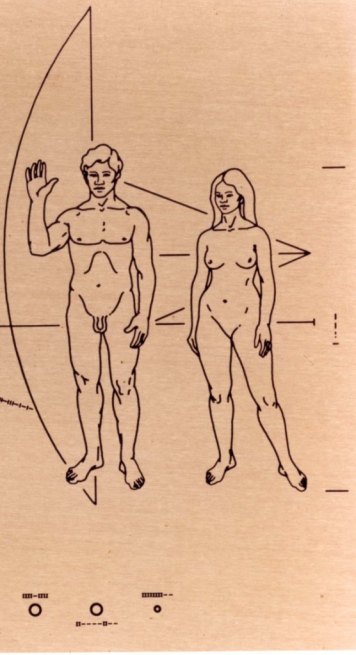 What makes a story science fiction? Is it an otherworldly location, the science, the time in which it is set?
What makes a story science fiction? Is it an otherworldly location, the science, the time in which it is set?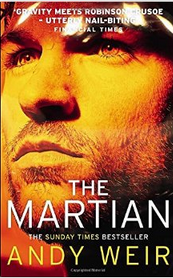 Take, by contrast, Andy Weir’s The Martian. An astronaut is trapped on Mars and has to make enough air, food and water to survive. It’s genuinely an addictive read and I loved it, but it could just as easily be happening in Antarctica or on a deserted island. The science provides the particular challenges and the possibilities, but it does not change the human essence of the story.
Take, by contrast, Andy Weir’s The Martian. An astronaut is trapped on Mars and has to make enough air, food and water to survive. It’s genuinely an addictive read and I loved it, but it could just as easily be happening in Antarctica or on a deserted island. The science provides the particular challenges and the possibilities, but it does not change the human essence of the story.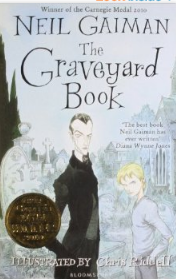 Science fiction should be a literature of the imagination. I think it’s a shame if we forget this. The same goes for fantasy – Neil Gaiman’s Graveyard Book is a deeply invented world, and very different from The Jungle Book, which inspired it.
Science fiction should be a literature of the imagination. I think it’s a shame if we forget this. The same goes for fantasy – Neil Gaiman’s Graveyard Book is a deeply invented world, and very different from The Jungle Book, which inspired it.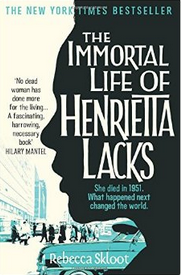 Science fiction works on this same continuum, the scale of human change. A great science fiction idea should allow us to send humanity to startling new places with new advantages, cruelties and injustices. And those are places in our souls, not just other planets.
Science fiction works on this same continuum, the scale of human change. A great science fiction idea should allow us to send humanity to startling new places with new advantages, cruelties and injustices. And those are places in our souls, not just other planets.
